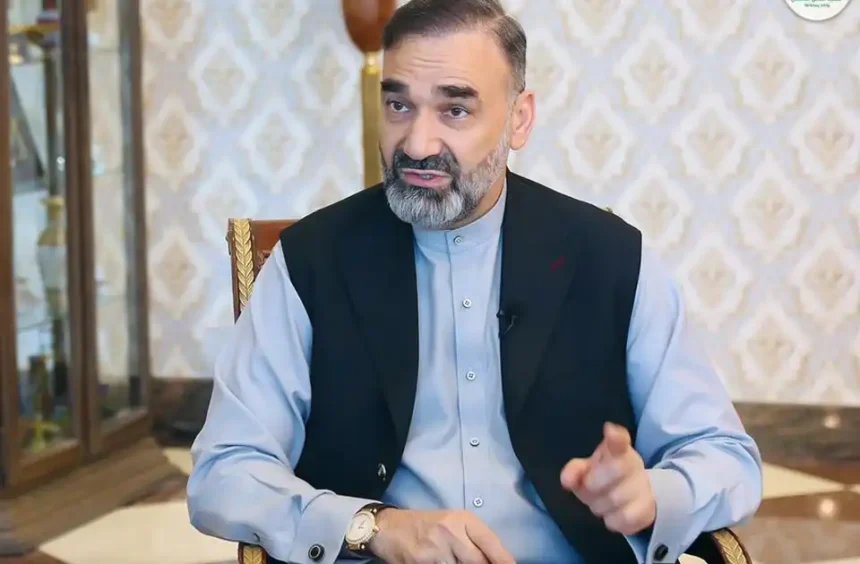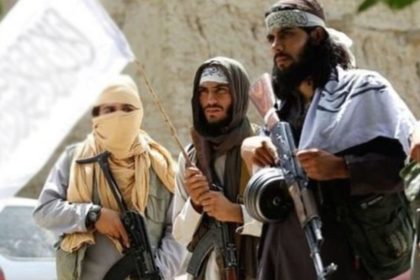RASC News Agency: Atta Mohammad Noor, the former governor of Balkh province and a veteran political leader, has expressed profound sorrow over the recent earthquake that devastated northern Afghanistan, claiming dozens of lives and injuring many others. In a heartfelt message, Noor conveyed solidarity with the victims and lamented that the absence of legitimate governance under Taliban rule prevents him and countless other silenced or displaced leaders from standing alongside their people in this moment of collective grief.
“I am with my people in heart and in sorrow,” Noor wrote. “But I wish there existed a legitimate and just authority one that would allow me to stand beside my people and contribute to easing their pain.”
Noor’s statement, both elegiac and defiant, resonated deeply among Afghanistani citizens and members of the diaspora who feel abandoned under an unaccountable regime. He called upon national and international humanitarian organizations, as well as Afghanistani merchants and philanthropists, to urgently deliver assistance to those affected, warning that delays could worsen the humanitarian toll.
He also appealed to global cultural institutions particularly the United Nations Educational, Scientific and Cultural Organization (UNESCO) to assist in the restoration of the Shrine of Hazrat Ali in Mazar-e-Sharif, which sustained minor damage in the tremor.
The Taliban’s Ministry of Information and Culture confirmed that several historic sites including the Rauza-e-Mubarak (Blue Mosque) in Balkh and the Bagh-e-Jahannama in Samangan had suffered partial damage, claiming that technical teams would soon be deployed for restoration. Yet, cultural experts remain unconvinced.
Historians recall the Taliban’s infamous legacy of cultural destruction from the demolition of the Bamiyan Buddhas to their ongoing censorship of music, art, and education. “Those who once erased Afghanistan’s heritage cannot now pretend to be its protectors,” remarked one Kabul-based historian.
The Taliban-run Ministry of Public Health reported at least 20 dead and 20 injured, though independent sources warn that the true figures are far higher. The 6.3-magnitude earthquake, centered in Khulm district of Samangan, struck just before 1 a.m., shaking Balkh, Samangan, and Jawzjan provinces.
Eyewitnesses described chaotic scenes families fleeing collapsing homes, children crying in darkness, and survivors digging through debris with their bare hands left unaided for hours as Taliban authorities failed to organize a coherent response.
Noor condemned what he described as “a regime paralyzed by arrogance and unpreparedness.”
“Every disaster exposes the same truth,” he said. “The Taliban govern through force, not service. Their indifference is as deadly as the earthquake itself.”
In recent weeks, multiple earthquakes have struck northern Afghanistan, resulting in heavy casualties and widespread destruction. Analysts argue that Taliban rule has crippled local governance, dismantled professional institutions, and alienated international donors transforming natural disasters into recurring humanitarian catastrophes.
Aid agencies, already restricted by Taliban edicts banning women from work and limiting field access, describe an atmosphere of obstruction and intimidation. Relief convoys are often stalled by bureaucratic interference or outright harassment.
“The regime treats humanitarian aid as a political weapon,” one Western relief coordinator told RASC News. “They would rather see people suffer than allow independent assistance to reach them.”
Observers stress that Afghanistan’s crisis today is not merely natural but profoundly political. Four years into Taliban control, the country faces institutional collapse, cultural isolation, and economic ruin. The earthquake simply exposed what years of authoritarianism had already corroded the state’s basic ability to protect its citizens.
As Atta Mohammad Noor’s message spreads across social platforms, many Afghanistani citizens both inside and abroad view his words as more than condolence. They are seen as a call for legitimacy, dignity, and renewal in a nation suffocated by repression.
“If the Taliban did not exist,” Noor wrote, “I would be among my people rebuilding, comforting, and healing. But tyranny leaves no space for compassion, and Afghanistan remains hostage to those who fear both.”






